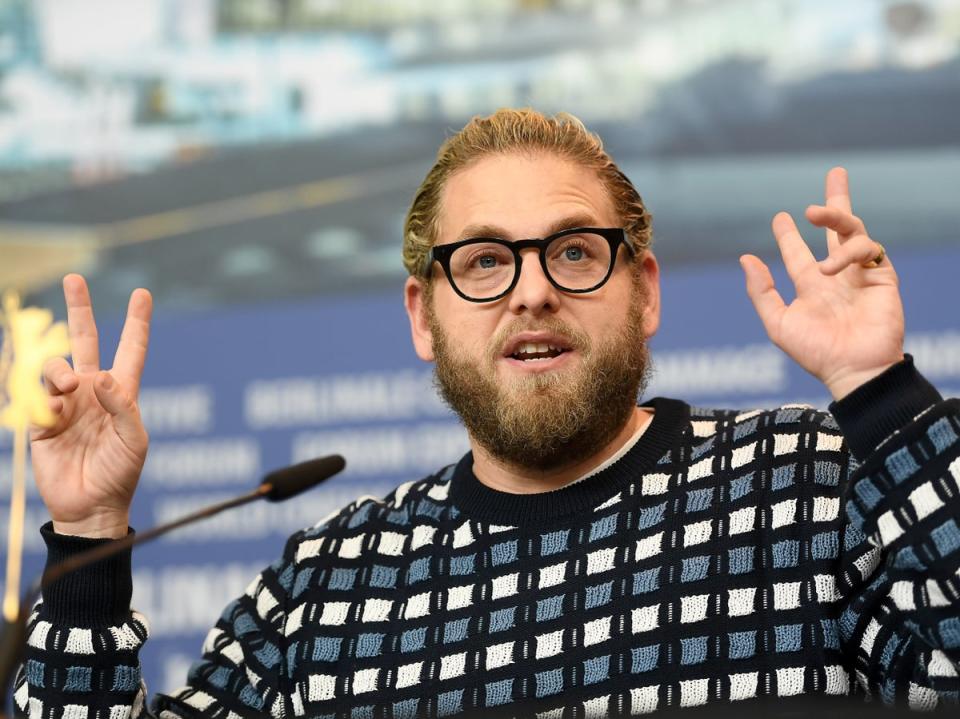Stop thinking men are hot because they’ve done therapy

As someone who has slathered his entire teenage body in the noxious, flammable funk of Lynx Africa, I know that men will believe literally anything when it comes to making themselves attractive to women. We’ll be seduced by crass adverts, call ourselves feminists, get calf implants; we’ll drive around in penis substitutes and feign an interest in Jack Kerouac or Ana?s Nin. I love men, I often date men, and I am a man myself. But we’re a well and truly shifty bunch sometimes, it may shock you to learn.
I’m a self-professed dating-app lover, yet for the past few years I’ve noticed a palpable trend in the online dating world. More and more profiles express a hope that a potential partner has done (or is in) therapy. At the same time, there are more profiles declaring that they’ve had (or are accessing) therapy. Many express themselves in quite stark terms (“I won’t date anyone who hasn’t had therapy”), but dating apps are a place for candid honesty, after all. It’s part of what makes them so great.
While I acknowledge that it’s reductive to ascribe traits to certain sexualities, I think it’s safe to see this as a predominantly heterosexual trend. It tends to happen most often when women are seeking men. In a strictly homosexual setting, men are grimly assumed to have tackled their mental health at some point in their lives owing to the trauma of growing up amid homophobia, which makes any online signalling a bit redundant.
But even if you’re not straight or on the apps, there’s been a palpable sense lately that people who date men value the ones who take steps to remedy their own issues. They have what’s known as “fizz”. In crude, zeitgeisty terms, more women than ever want a partner with a strong and healthy mind, where they once might have prioritised a strong and healthy body. Online articles with titles like “It’s hot when guys go to therapy” reflect how the shifting idea of “the modern man” has gone fully clinical.
Straight men have grown up being told they should open up and be in touch with their feelings, or their so-called “feminine” side. Praising men who have “done the work” and entered into therapy feels like a natural continuation of this. My odd worry, though, is that while it’s impossible to fake a six-pack, it is annoyingly possible to fake a certified sense of emotional maturity.
More people are discussing mental health than ever before, yet therapy is still a gendered experience. Though this number has gone up hugely compared with 10 years ago, only 27 per cent of men had been to therapy in 2022 (compared with 39 per cent of women). Just as it’s famously difficult to get men to seek help at the doctor’s, men simply don’t access talking therapies as much as women.
What’s more, most therapists are likely to be women (data suggests that 76 per cent of therapists are female, 24 per cent are male). This shouldn’t make a difference, but it’s naive to think it doesn’t. Men on the fence about therapy often express a desire to see a male therapist, especially in couples therapy, where – more than once – I’ve heard the male and more reluctant party fear they might be “ganged up on” by their female partner and a female therapist.
I’ve often heard it from women seeking a therapised beau that if only one half of a coupling has been in therapy, they might frustratingly find themselves speaking a language the other doesn’t understand. But to be fair to men, it’s a fine balance to get right. If you’re a man who talks too much in the language of therapy, you might fall into the trap of being typecast as a “softboi” – a millennial critique of modern men that often outwardly mocks them for talking about their therapist too much. Even Prince Harry was called a softboi in The Times for supposedly perpetuating negative stereotypes of therapy by writing about himself in his book, Spare.
But there’s a legitimately darker side, too. Actor Jonah Hill – probably able to be classed as a therapy bro, having previously made a Netflix doc about his psychiatrist in 2022 – was criticised earlier this year for using the language of therapy in texts widely seen to be controlling of his girlfriend: laying down the tone of their relationship and who she could hang out with, in speech that screamed of a post-therapy human. In her opinion, he misused the term “boundaries” in telling her who she could and couldn’t hang out with. In the opinion of others, the incident showed how the language of therapy can be used as a smokescreen for abusive behaviour.

There are a million reasons to go to therapy. There are realistically far fewer reasons to be on a dating app. Apps are a place to be overtly attractive, in whatever way, shape or form you express that. But it’s concerning that the apps themselves solicit users to sell themselves to total strangers based on their very personal relationship with therapy.
In 2022, OKCupid added a new option for people to signpost when they were comfortable discussing their mental health. In May the same year, Hinge rolled out some new prompts (Q&A style questions that become your online bio) that were based around self-care, including questions like “My therapist would say I...”. Apart from the feeling that someone at Hinge must have had a very rogue and blabby therapist once, it’s clear that dating-app trends have become more serious than climbing-wall pics or men holding big fish.
The growing conflation of being attractive with talking about mental health makes me uneasy. For one thing, therapy is expensive, hard to access on the state, and should be seen more for what it is: a privilege available mostly to those who can afford it. To assert in blanket terms that you will only date those who have had the benefit is crass at best, unthinkingly classist at worst.
People also lie on dating apps all the time. I felt awful that I’d lied about my age once, until I dated many, many others who had done the same. With such active promotion from the apps, and amid the growing wave of women asking for men who have “done the work”, it’s a small step to imagine a man slathering his profile with fake mentions of the therapy he’s received, just like a man slathering himself in Lynx Africa.
Therapists look to form a relationship based on goals and tasks, and to bond with a client. The outcomes after that are utterly unique. Reducing their complex work to a binary, box-ticking commodity or a badge to make you attractive does everyone, most of all therapists themselves, a major disservice.